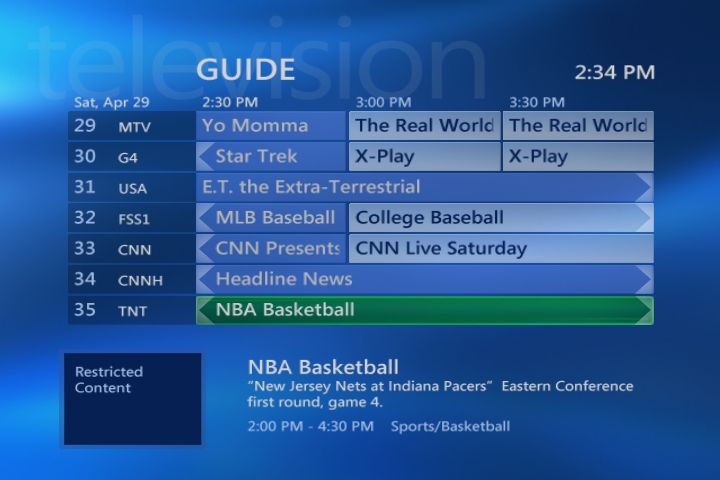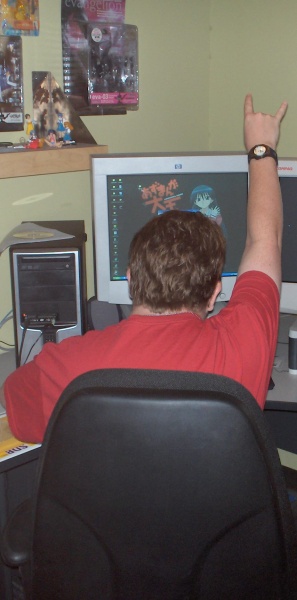Now, because I only watch a few shows and am rarely around when those shows air, I've got a Windows XP Media Center Edition 2005 installation on a computer hooked up to my TV that acts like a TiVo: recording TV shows, getting TV listings, et cetera. I also use it as a true media center. My pictures, music and movies are all on this one central machine.
Over the last few months, I've had to deal with a few inconveniences. Lots of TV channels have started using the broadcast flag, so not only have I been unable to keep some shows until I had time to watch them, but any that are copy protected can't be viewed from other computers in the house. But while inconvenient, I've been able to get around it via weekend reruns or other options.
But Saturday took the cake. I sat down to watch "Mythbusters," but before I could select anything, I noticed an odd error message on the screen.

I'm used to errors greeting me in the morning. My wife isn't very technically adept, so she'll usually leave errors on either her machine or the TV for me to troubleshoot in the morning. Fortunately, on a Media Center PC, it's generally easy enough to just hit the "Back" button on the remote to see what she was doing.

After hitting back, I noticed that she was watching TNT. I hit "OK" to select TNT again, and still got the "Restricted Content" message.
Now, it's one thing to prevent someone from recording a television broadcast, but it's something else to prevent someone from watching a live broadcast. What's even worse is that the signal they embedded to trigger the broadcast flag messed up Media Center so that if I switched to a different channel, I still had the "Restricted Content" message, but with the audio of the channel in the background.
Turning off my Media Center and turning it back on resulted in everything being okay until I changed to TNT, and then it all repeated itself.
This brings me to my point. Microsoft has been making a lot of concessions to big media over the last few years in an effort to get studios to use Microsoft DRM technologies for copy protection with some measure of success. However, Microsoft has now given these companies the tools to not only prevent unauthorized use of their content, but to actually prevent authorized use of their content. Heaven forbid that someone actually want to watch live television via their computer.
What kills me is that I'd most likely have a better end-user experience using technology that pre-dates the broadcast flag. I've got an older TV tuner card in another machine that not only ignores the broadcast flag, but gives me slightly higher image quality. Of course, that card doesn't work with Media Center...
So what are we as consumers to do? The Bush Administration and the FCC have pretty much proven that consumer rights are the last thing on their agenda. The senators for my state are too busy trying to get memorials for astronauts to actually do any work. The senators in my last state weren't any better, suggesting that media companies should actually be allowed to bypass due process and destroy people's computers while at the same time violating license agreements themselves.
I'm really at a loss.
 You know that you're enjoying your job a wee bit too much when you can throw up the horns while testing an installer...and mean it.
You know that you're enjoying your job a wee bit too much when you can throw up the horns while testing an installer...and mean it.